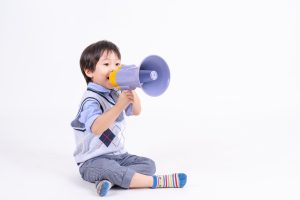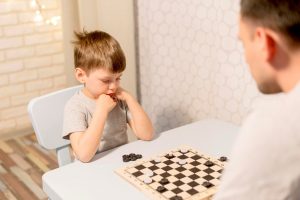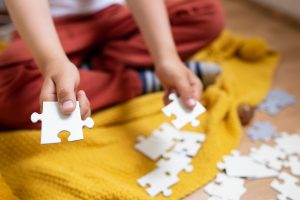
Bilingualism: It’s the understanding and use of two languages.
Many people grow up only ever learning one. But in Singapore where we live in a multi-racial society, picking up other languages outside of our mother tongue has become commonplace.
Why does all of this matter to you, the parent?
Well, our child is set to enter the education system of Singapore, where the curriculum requires them to take English and mother tongue as their language subjects. It is an inevitable skill that your child must have to stay on top of their linguistic studies.
To put it simply: “The sooner, the better!”
Let’s chalk the science and practicalities down to 5 benefits to picking up bilingualism early!
1) Children Simply Learn Better!

[Freepik]
Children are sponges, or empty canvases. They’re so new to the world that they are naturally hypersensitive to information around them (This is why children can also pick up bad habits from examples around them!).
The nerdy term behind this is “high brain plasticity”. That just means they’re better than adults when it comes to learning and retaining languages! It’s said that a child can pick up new languages within a few months of instruction on average. But of course, this learning speed takes a nosedive as they grow older.
Knowing this, international schools emphasise bilingual learning in preschool, with one such example being the Kinderland School in Singapore which offers a Chinese Integrated Curriculum and a Japanese-English Bilingual Programme.
2) Language is the Key to Communication

[Freepik]
Singaporean parents are “kiasu”, and they want their children to be ahead of the curve all the time. Hey, we’re talking about you! It’s not a bad thing to want your kids to excel, but do pay attention to their mental development too! We don’t want them to grow up with deficiencies. As such, we believe that children show hone their emotional growth as a priority before their academics. And languages serves as a bridge to cover that emotional aspect of their journey.
Why? Reviews of multiple studies have indicated that bilingual preschoolers are a bit better than their monolingual peers at exercising empathy. Young bilinguals were found to be better at seeing, relating and thinking about other people’s motives and perspectives.
While not directly proven, this correlation may highlight something beyond the placebo effect. Developing children into conscientious and successful adults often starts with education in communicating.
And therein lies the value of learning the “language to connect”, sometimes even understanding non-verbal communication across and within different cultures!
3) Getting Used to Thinking

[Freepik]
“But if we try to force too much, it may become counter-productive in my child’s learning!” One may argue.
Indeed, for decades, it was thought that teaching children multiple languages confused the brain, leaving them unable to master any of the languages they were taught. But this way of thinking has long been debunked and studies show that the opposite might be true.
Bilingualism naturally has the child adapt to multitasking at language interpretation from one to the other. Some languages don’t translate directly into each other, so more thought is put into understanding how they work.
That’s not all, because it also indirectly frames their mind to be more open to new experiences and be more tolerant towards different ways of thinking. We believe that these are all amazing values that your children can pick up to pursue more intellect-demanding endeavors in the future, such as chess!
4) A Snowball Effect

[Freepik]
The good things just keep coming! Guess what, learning two doesn’t stop them from a third! Overloading their capacity to understand languages? Here’s where you’re wrong!
Children who develop a facility for a second language early in life tend to develop stronger neural frameworks for learning other languages later on. Their brains become more attuned to finding patterns within and across different language systems, giving them a distinct advantage in language acquisition throughout their lives.
After all, most languages today are related to each other by shared lineages. An example of this is Japanese and Korean, where both share linguistic similarities like their vocabulary pool and grammatical concept. It’s more than likely that children who have mastered a level of proficiency in at least two languages, can pick up a new language more efficiently!
Interestingly, this enhanced learning ability also applies to programming languages, giving bilingual children a potential head start in today’s digital world.
5) Keeping the Brain Active

[Freepik]
The fact that bilingual children’s brains tend to be more active may be key in ensuring they remain resilient against cognitive decline. This is why puzzles and other thought-provoking exercises exist. They test our brains, uses them actively and prevents them from slowing down.
In this way, bilingualism serves a similar purpose: The constant switching between different languages gives children’s brains the stimulation they need to bolster their cognitive capacity.
And this in turn creates a positive feedback loop that pushes your child to move their brain more!
Setting Standards for Their Future

[Freepik]
As you can see, children really do benefit from an early education, especially in the linguistic side of learning.
By making serious efforts to expose children to multiple languages, you are not just raising their language proficiency, you’re also responsible for bringing them up to become their best selves!
Whether emotionally, or academically, we believe that such intellectual fulfillment can bring forth synergistic changes for your child, and allow them to be well-prepared and excel in all aspects in their lives!
